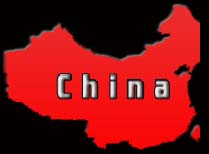China cracks down on "fake" journalists
 Beijing - China on Saturday said it would crack down on "fake"
Beijing - China on Saturday said it would crack down on "fake"
journalists, a category that appears to include many freelance
journalists.
The General Administration of Press and Publications issued a
circular on Friday asking journalists to register for press cards "in
order to prove their legal identities to their interviewees," the
government's official Xinhua news agency said.
The circular was designed to "protect the legal rights of news
organizations and journalists" and to "step up a crackdown on fake
journalists," the agency said.
People who forged press cards would be "severely punished," it said.
Media organizations should "improve their journalists' ethics and
skills," and prevent them from seeking money or other advantage for
favours, the agency said.
The circular banned paid journalism, "emphasized the importance of
credible reporting and directed journalists not to distort the truth or
disseminate false information."
Most registered Chinese journalists face strict rules and censorship of their reports by editors of state media.
But a growing number of freelance journalists working for Chinese
media and state media have highlighted several recent cases of
unregistered or bogus journalists allegedly demanding "hush money" from
companies for not reporting accidents, environmental problems and other
bad news.
The circular said that no-one should "interfere with or prevent
journalists from carrying out legal interviews," the agency said.
"Government organizations at all levels and their employees should
provide convenient access to journalists and take the initiative in
releasing information relevant to the public interest," it said.
The New York-based Committee to Protect Journalists said it
recorded 22 journalists in Chinese prisons at the end of last year, the
highest total in the world.
China last month announced new regulations for foreign journalists
that make permanent more liberal provisions introduced for the Beijing
Olympics in August.
But US-based Human Rights Watch and other rights groups said local
Chinese journalists had gained nothing from the temporary Olympic rules
and were subject to even tighter controls in the run-up to the games.
Police and officials also tried to dissuade some Chinese citizens
from talking to foreign media or urged them to avoid sensitive topics.
(dpa)